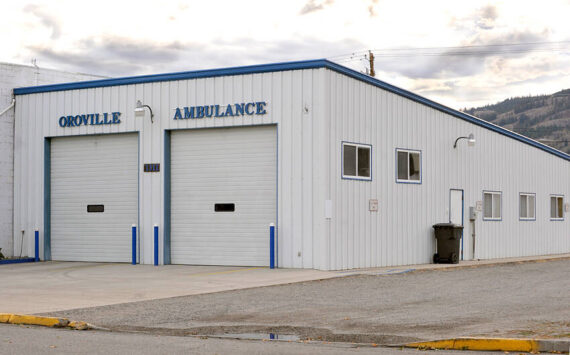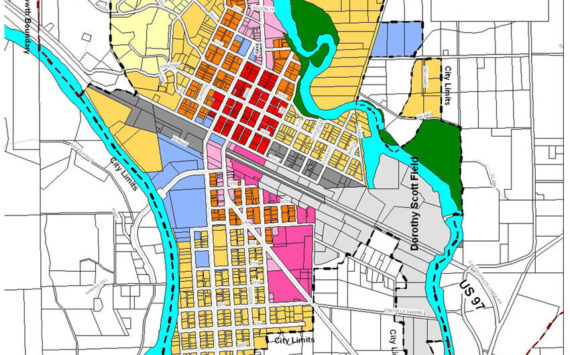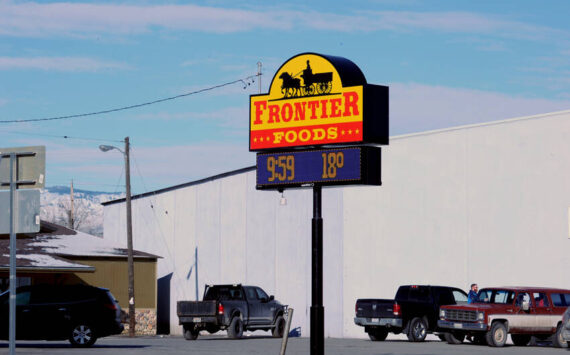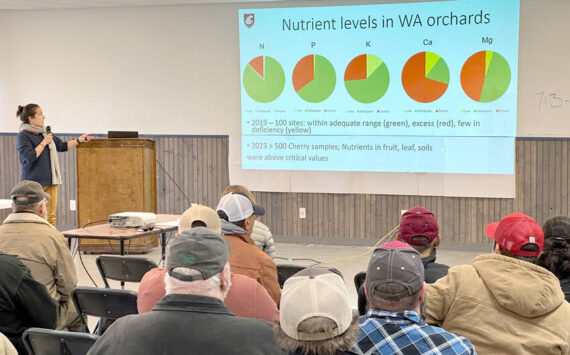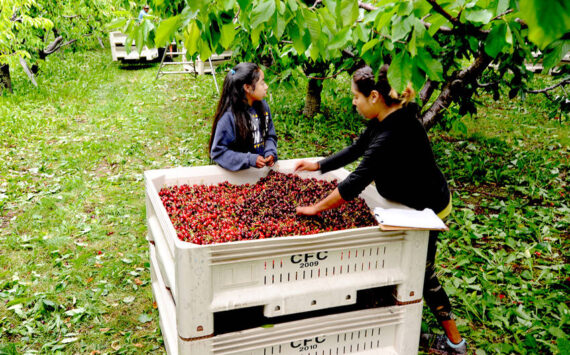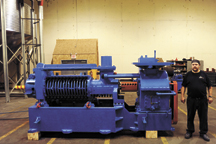
Leroy Smith, CCC Production Manager, stands next to a 1940/50’s vintage French-brand seed crusher that was refurbished from two similar machines owned by the Carbon Cycle Crush. The machine, built in Piqua, Ohio, still needs to be hooked up to a 200HP ele
OROVILLE – Carbon Cycle Crush was showing off their new seed mill for crushing canola seeds at their plant in Oroville.
The mill is actually a 1940’s or 1950’s vintage 10-24F French, built in Piqua, Ohio, one of three mills of this type the company has had in storage at their Oroville operation, according to Leroy Smith, the operation’s production manager.
“This particular machine was combined from two of those and totally refurbished,” he said. “It and the other two were last used by Cambria Foods in the 1960s in Lethbridge, Alberta. At that time they were running eight of them.”
The mill has a 10¼ inch bore and is advertised as having the capability of crushing between 100 and 150 tons of seeds. Besides the shiny new paint, the company also put in new liner bars and converted it from an electric choke to a manual one, according to Smith.
“It can do at least twice as much as the two Chinese-made mills we already have running at the plant. A lot of how much it can handle is based on how it is set up,” Smith said.
He said the newly refurbished mill was moved in place next to the two existing mills and will become part of the line in the near future. The two smaller mills, which were operated independently are now tied together. The first mill crushes the seeds once extracting oil and meal and then the meal is sent to the second mill where it is crushed again, in an effort to extract as much oil as possible. When the larger mill comes on line the two smaller machines will be tasked with each doing the initial crush and the recrush will be done in the big mill.
“This machine will potentially do the recrush down the road. We like to use our most efficient mill for the second crush to get every ounce of oil we can get from the seeds,” said Smith.
The meal is then sold to cattle, dairy and poultry farmers to be mixed about one to four with other feeds. The oil, which is not “food grade” is used in lubricants and as additives to diesel to make bio-diesel.
“We want to leave some of the good oil in the meal, but we’re leaving too much. It makes a difference to the purchaser if there is less oil, whether for dairy, poultry or cattle. We want to get as much oil out of the seeds as possible, because the farmers know how to better use the meal that is produced,” adds Arnie Marchand, Business Development Director for the company.
Marchand explained that the canola meal is prized by farmers as it is a good source of Omega 3 Fatty Acids. When the animals are fed the meal it allows the farmers to advertise their poultry, eggs, beef and milk as having the beneficial compounds naturally present in the food.
CCC gets most of its canola seeds from Canadian farmers in Alberta, but has been encouraging local wheat farmers to adopt the crop, at least on a rotational basis. Oroville is kind of the CCC’s test kitchen, they are using it as test bed for creating more canola crushing facilities in Eastern Washington. Their business plans include using Oroville as a base for setting up the new facilities and training workers, then moving the set up to the new location, while continuing to operate the Oroville facility.
